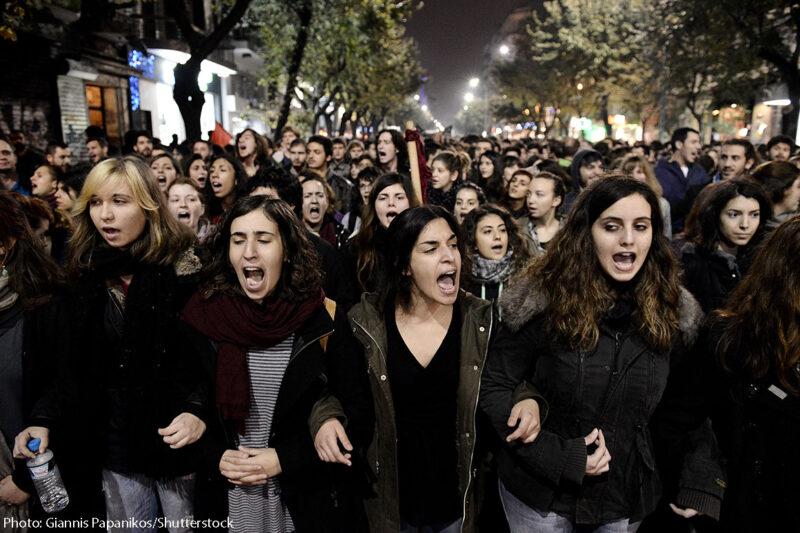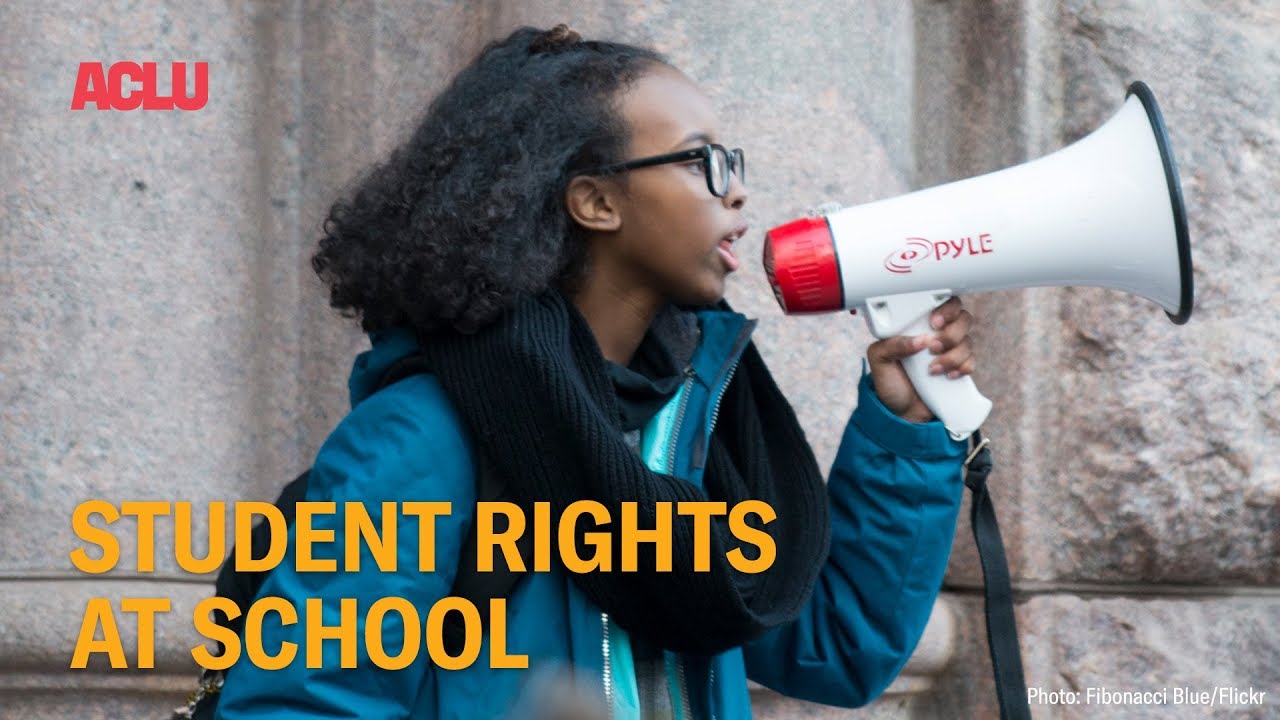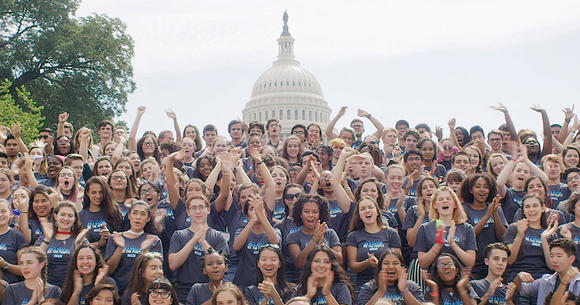Students’ Rights: Speech, Walkouts, and Other Protests



If you’re a public school student, you don’t check your constitutional rights at the schoolhouse doors. But whether schools can punish you for speaking out depends on when, where, and how you decide to express yourself.
That’s why it’s important that everyone — especially students and allies — learns about students’ rights.

Your Rights in School
Do I have First Amendment rights in school?
Yes. You do not lose your right to free speech just by walking into school. You have the right to speak out, hand out flyers and petitions, and wear expressive clothing in school — as long as you don’t disrupt the functioning of the school or violate the school’s content-neutral policies.
What counts as “disruptive” will vary by context, but a school disagreeing with your position or thinking your speech is controversial or in “bad taste” is not enough to qualify. Courts have upheld students’ rights to wear things like an anti-war armband, an armband opposing the right to get an abortion, and a shirt supporting the LGBT community. And “content-neutral policies” means rules that have nothing to do with the message you’re expressing, like dress codes. So, for example, a school can prohibit you from wearing hats — because that rule is not based on what the hats say — but it can’t prohibit you from wearing only pink pussycat hats or pro-NRA hats.
Can my school discipline me for participating in a walkout?
Yes. Because the law in most places requires students to go to school, schools can discipline you for missing class. But what they can’t do is discipline you more harshly because of the political nature of or the message behind your action.
The exact punishment you could face will vary by your state, school district, and school. Find out more by reading the policies of your school and school district. If you’re planning to miss a class or two, look at the policy for unexcused absences. If you’re considering missing several days, read about truancy. And either way, take a look at the policy for suspensions. In some states and districts, suspension is not an available punishment for unexcused absences. And nationwide, if you are facing a suspension of 10 days or more, you have a right to a formal process and can be represented by a lawyer. Some states and school districts require a formal process for fewer days, too. Also, you should be given the same right to make up work just as any other student who missed classes.
Find out the rules so you can tell if they are being applied differently when it comes to your walkout.

Your Rights Outside School
What about for protesting away from school?
Outside of school, you enjoy essentially the same rights to protest and speak out as anyone else. This means you’re likely to be most protected if you organize, protest, and advocate for your views off campus and outside of school hours.
What are my rights on social media?
Your school has less authority to punish you for what you say on social media while off campus and outside of school hours than it has to punish you for what you say in school. If your posts are political or religious, the school will have to meet an especially high bar to justify any punishment. Some schools have attempted to to punish students even for off-campus, online posts. While courts have differed on the constitutionality of those punishments, the ACLU has challenged such overreach where the speech could be deemed merely disruptive, but does not rise to the level of bullying, harassment, or threats.
People Power
If you’re hosting an event at your school or in your town, and want community members to rally with you. Register your event on the People Power map.
ACLU Summer Institute
If you’re a High School student, apply to join hundreds of young people this summer in Washington DC to hone your advocacy and activism skills.
More Resources
Students: Know Your Rights! Presentation
Students around the country turned the heartbreaking school shooting in Parkland, Florida, into an inspiring push for change. Coordinated student walkouts made national news but also spurred disciplinary threats from some school administrators.
Read More
Students’ Free Speech Rights in Public Schools
If you’re a public school student, you don’t check your constitutional rights at the schoolhouse doors. But whether schools can punish you for speaking out depends on when, where, and how you decide to express yourself.
Read More
Schools Should Use Walkouts in Protest of Gun Violence as a Teaching Moment
The impulse to discipline and control young people may come from the desire to avoid a contentious conversation in the short term, but resorting to punishment doesn’t solve the problem, and it doesn’t keep kids safe. School administrators owe it to their students to examine their reaction to young peoples’ self-expression and to ask how they can help build on this moment of protest as an educational experience.
Read More
Can Schools Discipline Students for Protesting?
Students around the country have turned the school shooting in Parkland, Florida, into an exemplary push for change. Here's a quick primer on their protest rights.
Read More
Student Rights at School: Six Things You Need To Know
While the Constitution protects the rights of students at school, many school officials are unaware of students’ legal protections. Here is what students should know about their rights in schools with regards to dress codes, LGBT and pregnancy discrimination, and more.
Read More
Tinker v. Des Moines
In 1965, Mary Beth Tinker was a 13-year-old who decided to wear a black armband to school to protest the war in Vietnam. That decision led to a landmark Supreme Court decision.
Read More
Speech on Campus
Restrictions on speech by public colleges and universities amount to government censorship, in violation of the Constitution.
Read More



